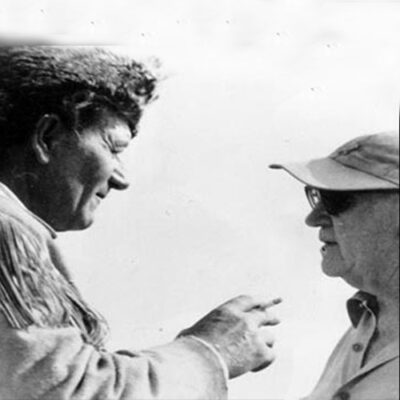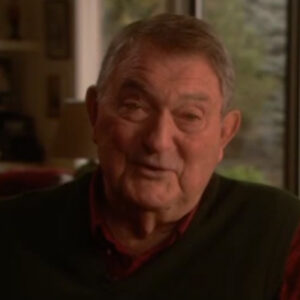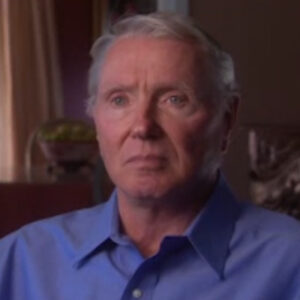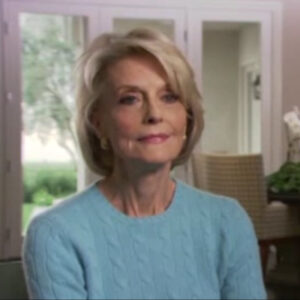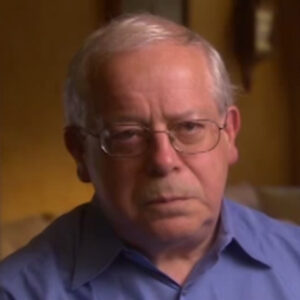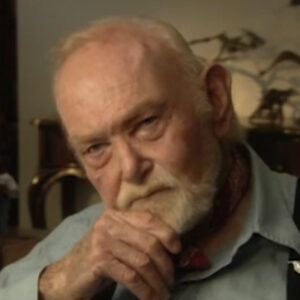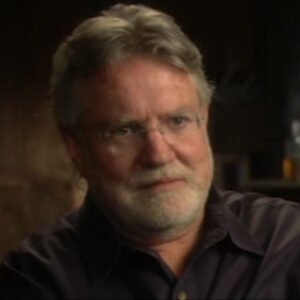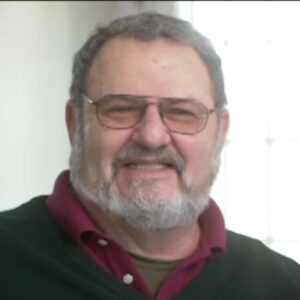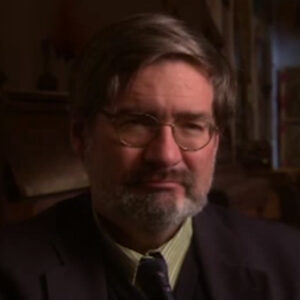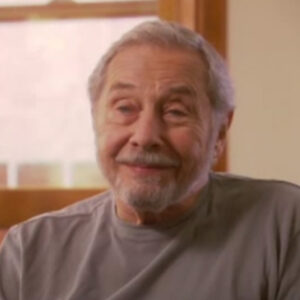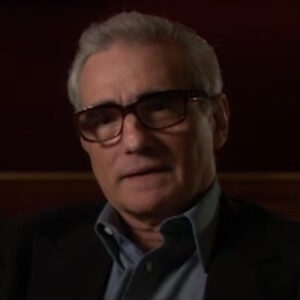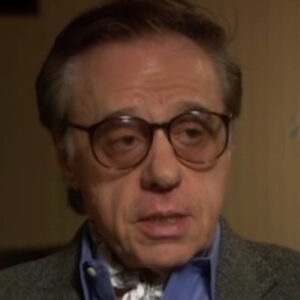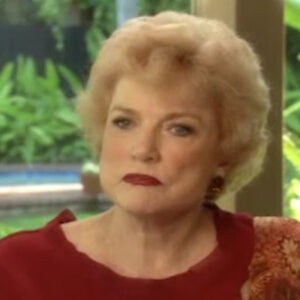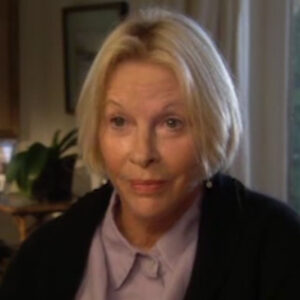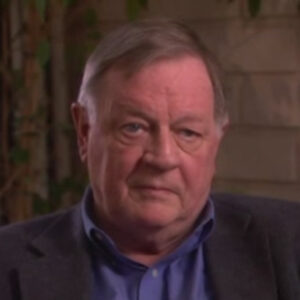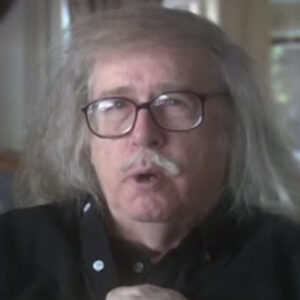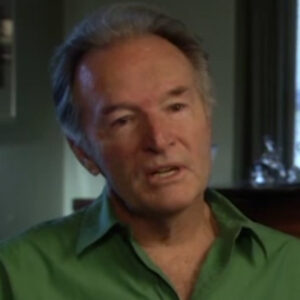Speaker The first time you met John for the John Wayne.
Speaker How can you not remember the first time you met John Ford, are you queen? Duke came over to Paramount about 1937, I think, to do a picture called Shepherd of the Hills, Henry Hathaway directing it, and it had Harry Carey Senior in it and that and I was on the set and I had met Duke before this. And he was so gracious me. I first met. John Wayne, when I was an office boy for, you know, soccer, I went to Paramount at Paramount since 1928, which is a short in 1928 2005, and I met Duke when he was at Republik.
Speaker I knew some people out there and I went out to visit my friend. There and he was there with Gene Gene Autry, and so I met him and then when he came to Paramount, I knew him. I went on the set and John Ford was there with him. And John Ford was very cordial to me.
Speaker And I was just somewhat of an office boyfriend of soccer. And he said, Duke tells me that someday you’re going to be a producer. And I said, Really, Mr. Ford? And he said, what kind of what kind of films would like to do? I love to do Westerns. He said, don’t do Westerns. I said, why? He said, because in you he said I’d be trying to compete with you. And that was my first meeting with John Ford. And over the years, we became very close friends to the point. Six years later and the late 50s and the 60s, I produced four or five Westerns a year at Paramount, and I kept in close touch with John Ford. He loved to be called Jack when Jack Ford and one year the critics of America had voted on the best actor in a best producer of Westerns. And it was called the Silver Spurs Award, which Reno sponsored. And because Duke was getting it this year, that made it the Gold Spurs. And I want it for being the producer. And Duke won it for the for the actor. And I got a call from John Ford. Very crusty. Hello, A.C., this is Jack. I said, Jack, how are you? He said, congratulations on getting the award. And I said, you know, Jack is so important to me because I’m not only getting it, I’m getting the award where John Wayne, my good friend, Duke Wayne, he said the hell with John Wayne. He said, be a damn prop man. If it wasn’t for me. For goodness sakes, don’t tell people that. Just so happy getting this award with Duke Wayne. Tell him you’re getting the same award I got last year. And he said that that’s better than John Wayne. And he said, A.C., you know, making all those Westerns at Paramount.
Speaker Why don’t you like me? I said, Jack, cause I like he said, you’ve never called me and asked me to direct one of your Westerns. I said, Jack, your salary is three times my entire budget, he said. You’d have to pay me scale when you and I said yes, he said, I want to show your friend Duke Wayne, but I don’t need him. I don’t need Monument Valley. All I need is a camera and a script. And I can do it. And I’ll do one of your pictures for scale and we’ll prove them. We can do these together. And I was so excited that Jack and I were possibly doing a picture. He said, you got a script in mind and always had two or three. I said, yes. He said, I have to. Where do you live? I said, I live in Bel Air. You go at sunset. I said, yes. He said, You know where Holloway Drive comes up the hill and meet Sunset Boulevard? Yes. He said there’s a triangle there with a light signal on it. I said, I know that. He said, you’re you’re younger me. You get there early because it’s hard to find a parking spot five o’clock sharp, bend the triangle with a strip that you want me to read and I have one will exchange scripts. I get there early. I park and I look over in the triangle and there’s a girl in a triangle with a very loose sweater lifting in it. Every car that comes by showing her bare breasts in every car, both ways of showing her. And I got to go and stand next to this girl right next to her.
Speaker And for John for John Ford to come up and we exchange.
Speaker So I wait a while and I go over there about three minutes to five and it’s very crowded, right shoulder to shoulder. She doesn’t say hello to me. I don’t say hello to her, certainly. And she’s flashing every car that goes by with the bare breasts. John comes up and he says, I say I said, Jack, how are you? And he this girl goes over and stands next to him and his flashing her bare breasts to John Ford while we’re talking. He doesn’t say, who’s your friend? Who’s this girl? And he ignores and she keeps flashing. There’s other cars, goes by. She flashes them to work scenes and they are scripts. And he says, Rita, call me Thursday. Let’s have a meeting. And he drives off. I go back and I stand on the curb and I watch her for eight or ten. Then she’s still flashing every car that goes by.
Speaker A couple of days later, Duke Wayne, who lived in Newport Beach, and he came in to Paramount every Tuesday to have lunch and by helicopter. And I saw Duke and our tables in a private dining room. There was a bonanza table, my table, and the next table was John Wayne and Henry Hathaways table. And Duke came in and he said, I understand you’ve been talking to Patty John, John Ford. And that meant that he had talk to Jack and he said he laws.
Speaker We’ve seen scripts and he didn’t say who was a girl flashing, flashing her bare breasts.
Speaker Nothing who said so to this day, I don’t know if Jack Ford put her up to this or if Duke Wayne put it up there or if you just happen to be there’s a girl flashing all the cars go. I’ve never I’ve never known the same time you were making your Westerns in the 60s.
Speaker Yeah. Ford and Wayne made a time out. The men shot.
Speaker Yes, they did make that relationship between Ford and when you make their fortunes so many years, you know, their relationship was just cemented by, I think, the fact that each one of them had such admiration for the other person. And as John Ford said to me once, you know, if it weren’t for me, he’d still be a prop man and he wouldn’t have done stagecoach. They had such great admiration for for each other. I it was interesting to watch them work because John Ford was a crusty, mean fella. When he get really excited, he’d chew on that handkerchief and do it and yell at people and things. And I never saw him do that with Duke, though he has great, great respect for Duke.
Speaker And Duke admired him so much that I never heard Duke question anything the Jack Ford said to do or whatever, because he was Jack Ford, was he? He was he was the master of all of all of these. And he had been an actor. He’d been at Republic shooting Westerns and six days, five days used to tell me if I had your schedule. And I’ve been wonderful. And he really made a monument, a monument valley. He was there and his cameraman, of course, and most of those was Lennon. And I think if someone were to ask me, the five best cameramen I’ve known over the 77 years I’ve been at Paramount, Burt would certainly be one of them. And Burt, under the guidance of John Ford, had the ability to capture that monumental, that beautiful, gigantic background without distracting from your from. From your center characters and things like that, and John Ford certainly depended a lot on Burt to capture what what he saw there in Monument Valley. Another thing I remember about Duke, when Duke would come in, as I said, every Tuesday by helicopter from Newport Beach and in the private dining room, Duke and Henry Hathaway shared a table next to my table. And Duke came in one Tuesday. Henry was on location and the table was vacant.
Speaker But I was having lunch with a tall, voluptuous, long haired.
Speaker Beautiful lady, very attractive, very, very pretty, and Duke came in and said hello to me standing over her and looking down at her, and I introduced them and I said, Duke, if you don’t, would you like to join us? Yes. And you pull a chair out and we’d have lunch many times, many days. And he paid most of his attention to this very voluptuous, beautiful blonde.
Speaker And.
Speaker He we talked about this and he said, you know, I usually come in on Tuesday, but he see if the two of you would be here Friday, I come in to Friday and we can have and we can have lunch, lunch, too. And that sound like a good idea. And she talked about the picture she was in and ask all these questions and things like that. And she left. And as she left, he looked over and said, I see cracks. That’s a hunk. A woman, is it? And I said, yes. And he said, you didn’t tell me her name. And I said, Can you stop just a minute. Thank you. Now, she left and Duke looked over at a friend from high heels up and he said, Jesus, see, that’s a hunk, a woman. And I said, Yeah.
Speaker And he said, What are you saying? I was I said, That’s Christine Jorgensen. He said, Christine Jorgensen. So why didn’t you tell me who that was? And the private dining room had ten tables and he screened this out and everybody knew the Christine Jorgensen was on the lot. They were making her life story and that we had lunch a lot together. And she was she became a good friend. He said, why didn’t you tell me who it was? I said, Duke, you were standing looking down at her so intently. I said that you didn’t get it. I said that. He said, well, well, I don’t want to come in. I don’t want to come in Friday and have lunch. I said, Duke, you got to come in. He said, don’t tell anybody and for God’s sake, don’t have any cameraman around.
Speaker As you know, Christine Jorgensen was a first man who said that he was going to have a sex change in Sweden. And for a year, the cameras follow him all over time. Look, magazines and things with this transition. And when he went to Sweden, that was for three years and he was talk of America and they said something we did together was a prima donna re.
Speaker Well, I tell you, I remember that very well.
Speaker And I remember the locations that they went to and seeing it up on the board that he had there and.
Speaker I always watched when I watched them working, when I watched John Ford working, you could tell. That he was cutting the film, he knew exactly what was doing and if something went wrong and he said, don’t worry, I got it. We’ll do a pickup of this. And it was it. It was I don’t when I was on the set, I never knew whether to watch the actors. Did Big John Wayne. Big Jimmy Stewart, who was ah. To. Watch him direct, and he was so intense in doing it, he and B. the M.. Were to direct, I just love to go and sit and just watch them.
Speaker And then I love to watch and then go in and see the dailies, although I never do. The pictures have sometimes I go to watch the dailies when I’d be seeing him work and say, how does it come out on the screen now?
Speaker Because I was watching him and and not the actors or you don’t know if you got a fair story from the 1950s, early 1950s when they went to the Writers Guild meeting and the loyalty oath.
Speaker Yes. And that’s the way the bill was trying to get everyone to sign. Well, yes, just about, you know, when I mean, for it stood up and said, I make requested.
Speaker He always said that he would introduce himself and he said, hello, I’m John Ford, I make Westerns. I was his logo, that was his calling card.
Speaker I make Westerns and I have a business card that he made. And he says, John Ford, I make Westerns and I treasure that. And I had him sign it because that was a that’s a treasure that I have.
Speaker Someone told me the other day that we really only listen to the four directors with only be directed by four directors for. Hauck’s Hathaway and Bill Weldon Bill.
Speaker Well, yeah, Bill Wellman did some wonderful pictures of him and Howard Hawks, too, did this.
Speaker Well, I tell you, if Ford had authority.
Speaker And everybody said how tough he was, I found to be a very gentle man, I was on his yacht swimming around and he. And you had such admiration for giant Ford you never questioned. Yeah, I don’t know if I ever heard any actor ever question what he was trying to hide. Ford was saying and doing. And Henry Hathaway. Could be the sweetest, nicest guys in the world who said he can be a tyrant. I mean, a tyrant, everybody, a Jew and one time Duke and I would have Luigino. We’re having lunch with Henry Hathaway.
Speaker And Jimmy Cagney, Jimmy Cagney and I had officers together at Paramount, and Henry was telling Duke and Henry Duke and Jimmy Cagney about the time that he was assistant director and he was assistant director to this very mean dreaver, a torrent of a director on the set. And that was the meanest man I’ve ever seen. He was mean to all the actors. He was mean to this and everything. And we listened intently because nobody could be more dynamic and more and meaner on the set than Henry. And he said he he was doing a scene where a stuntman falls down stairs. And, of course, Henry said just right. He was working for this dislike what he was doing and told him off and made him do it over again. He said, Don’t you understand what I move aside. Let me show you what I’m trying to tell you to do. And he did the stunt and fell down the stairs and broke his leg.
Speaker So it deserved it. So. Right. He said, I was never so happy because see this me Marilyn said, break his leg. And we all looked at it and Duke and Jim and I just just broke up because no one could be meaner on the set.
Speaker Well, in him, people I mean, people today as well, when they think of John Wayne, they think of John Ford. They think of John Wayne as a super patriarch, the right wing conservative. Yes. And they say John Ford was the same.
Speaker Yeah. We’re we’re politically was for the with the say.
Speaker Yeah, I never heard.
Speaker I never heard John Ford express himself as openly as did Duke Wayne, but I tell you, sometimes when I think our country is in, this might be in a little trouble. And I love this country. It’s been so good to me. I play a recording that.
Speaker Duke made of John Mitchum’s poem, but about America, I know if you’ve heard it, nobody’s recorded it.
Speaker It’s sold hundreds of copies and things. And the theory is, I’m proud to be an American. And I think Duke helped bring back patriotism in America. I think Duke Wayne made us all proud to be Americans. And Duke had that strength on the screen then when you saw the picture. You wanted to be on his side because you know, his side for sure, going to win because he had that strength and that magnetism and whatever it was.
Speaker And when Duke made Stagecoach. The camera really fell in love with him.
Speaker And if the camera falls in love with a person or personality, the audience usually falls in love with what the camera fell and fell in love with, and he had that strength there. Also, the thing about Duke was.
Speaker All the women loved Duke, and it didn’t it didn’t jeopardize his standing with the media because they they loved him. They loved him, too, and. Duke Wayne was America’s hero and America loves heroes, and he came along at a time when we needed a hero and he remained a hero all that time. And even today, look what happens. He has several CDs out now selling off the roof. They had a I think it was last year, the year before in Europe, they had a contest, the most popular star of all time, John Wayne.
Speaker John John Wayne. Got it. And I think that John Wayne and John Ford. Appreciate it and own it and I would a great debt of gratitude to Bert Bert Glennon, because he had he he contributed greatly to their to their success and to his success.
Speaker He was I used to call him Rembrandt because, man, every scene that he did, every scene that but did was was a Rembrandt painting.
Speaker Good. My last question. I should people remember the collaboration between John Ford and John Wayne collaboration’s.
Speaker I tell you, I think every day people remember the.
Speaker The togetherness, the companionship, the association, the John Wayne and and John Ford had because their pictures, it’s almost like they have a weekly television show, one of their pictures is on some place every week and turn it on. And there and there they are. And you see the pictures that they did, yellow ribbon, all those wonderful pictures. They are as timely today as they were then, of course, the Westerns have that ability, don’t think that they’re timeless because a wardrobe somewhere changes does not change and that things like like this. And the other day someone said, you’ve been at Paramount all these years. You produce all of those questions at Paramount. What is the difference between the pictures that you made at Paramount and now that you were representing Paramount on a series called Deadwood? What’s the difference?
Speaker Two words, David Milch. David Milch.
Speaker I grew up with Cecil B., the M. William Hawks, Frank Capra, Preston Sturges, William Wyler, Billy Wilder. I’ve never known anybody like David Milch as Les Moonves, head of CBS said to me the other day. He’s probably the best write in television today. And he certainly and he certainly is. And all those years I went I’ve been at Paramount.
Speaker That’s like going to college. I got there when I was 10 years old. It’s like going to college, being at Paramount then. But David is like take a postgraduate course.
Speaker He’s his he’s a brilliant fellow. And thank you for letting me say some words about my friends, John Ford, John Wayne, Brooklynite, because in our business, it’s a small community. If somebody at Warner sneezes, somebody Paramount says, God bless you. And all the years I’ve been there, I’ve been blessed to have known and work with these fellows because when I first came to Paramount, there was silence.
Speaker I saw sound come in. I saw the big screen come in, color come in. When I was there, all ladies were typists. When I started, none of the writers, directors, producers. When I came there, we had two minorities.
Speaker Now the writers, directors, producers. So in my lifetime at Paramount, I’ve seen. A whole new generation come in in every department, writers, directors, producers, executives, art directors, cameramen, and it’s been wonderful to grow up with with that.
Speaker And I had to fill out an application, the about insurance and I said education. I said, yes, we’re University of Paramount, Hollywood, California. And no one. And no no one. No one has questioned it.
Speaker And they I was so happy to have been a part of making all those Westerns at Paramount. Wonderful.
Speaker But thank you very much. Thank you. So should I call a cemetery or.

